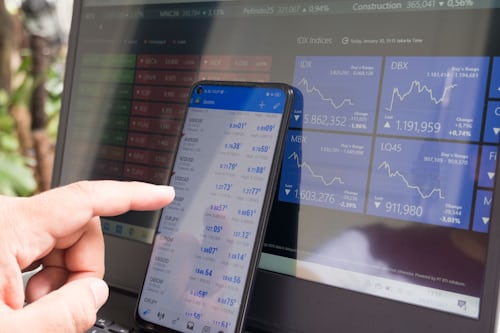These methods involve varying degrees of risk and range from direct investment in oil as a commodity to indirect exposure to oil through ownership of energy-related stocks, ETFs, CFDs with metatrader or options contracts. Each of these investment types can be purchased through an online brokerage account or directly through a broker.
Summary on crude oil:
- Crude oil is an essential commodity that supplies energy and petroleum products to the global market.
- Investors can speculate directly on the price of oil by trading oil derivatives or the exchange-traded USO product, which tracks the price of WTI crude oil.
- Investors can also take advantage of the oil markets in a more indirect way by investing in oil drillers and oil service companies or in ETFs that specialise in these sectors.
Using oil as an investment
Oil is an economically and strategically crucial resource for many nations, as it forms the basis for much of the energy we consume. Countries like the United States have large reserves of crude oil for future use. The measure of these oil reserves serves as an indicator for investors; changes in oil stocks reflect trends in production and consumption.
Note: In the spring of 2020, oil prices collapsed amid the COVID-19 pandemic and economic slowdown. OPEC and its allies agreed to historic production cuts to stabilise prices, but they fell to a 20-year low.
Oil and gas investors look for specific economic indicators to help them understand future movements in the oil industry. Like any commodity market, oil and gas companies and oil futures are sensitive to inventories, production, global demand, interest rate policy and aggregate economic numbers such as gross domestic product.
Apart from supply and demand factors, investors and speculators bidding on oil futures are another driving force for oil prices. Many large institutional investors now involved in oil markets, such as pension and endowment funds, hold commodity-linked investments as part of a long-term asset allocation strategy. Others, including speculators on Wall Street, trade oil futures for very short periods to make quick profits. Some observers attribute large short-term fluctuations in oil prices to these speculators, while others consider their influence to be minimal.
Invest directly in oil
A direct way to own oil is to buy oil futures or oil options. Futures contracts are highly volatile and carry a high degree of risk. In addition, investing in futures may require the investor to do a lot of homework and invest a large amount of capital.
Another direct way to own oil is to buy commodity-based oil exchange-traded funds (ETFs). ETFs are traded on an exchange and can be bought and sold in a similar way to shares. For example, if you buy a share of the U.S. Oil Fund (USO), you have exposure to about one barrel of oil. The fund's investment objective is to achieve daily investment results that correspond to daily percentage changes in the spot price of West Texas Intermediate (WTI) crude oil for delivery to Cushing, Oklahoma.
CFDs (contracts for difference) are also suitable for oil trading. With them you can profit from rising and falling oil prices. The contracts are issued by a broker and are very liquid.
- Futures (forward contracts)
- ETFs (physically deposited)
- Options
- CFDs (contracts for difference)




